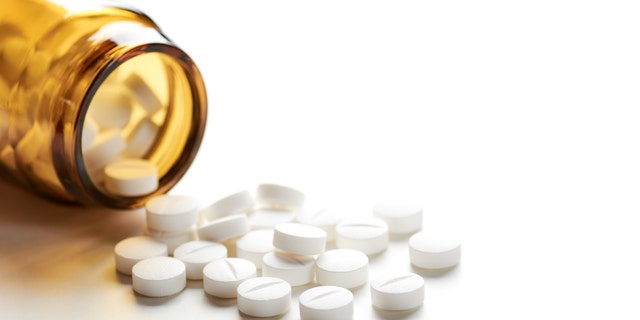A common painkiller is being tested as a potential treatment for hospitalized coronavirus patients to see if it reduces the risk of blood clots, according to researchers. Aspirin, a known blood thinner, will be given to patients enrolled in the RECOVERY trial in the U.K., according to a news release.
The researchers plan to give aspirin to about 2,000 patients in the trial in addition to standard-of-care treatment. The results will be compared with 2,000 patients who only receive standard-of-care treatment and assess for mortality after 28 days, as well as the impact on hospital stay and need for ventilation.

Aspirin is also used as a pain reliever and to reduce fever or inflammation.
(iStock)
“We felt it was particularly important to add aspirin to the trial since there is a clear rationale for believing that it might be beneficial and it is safe, inexpensive and widely available,” Peter Horby, professor at the Nuffield Department of Medicine and co-chief investigator of the RECOVERY trial, said in the news release. “We are looking for medicines for COVID-19 that can be used immediately by anyone, anywhere in the world. We do not know if aspirin is such a medicine but we will find out.”
US TOPS 120,000 DAILY CORONAVIRUS CASES FOR FIRST TIME
Aspirin, when used daily, has been shown to reduce the risk of heart attack, clot-related strokes and other blood flow issues in patients who have cardiovascular disease or who have already had a heart attack or stroke, according to the FDA. It’s also used as a pain reliever and to reduce fever or inflammation.
CORONAVIRUS CLUSTER TIED TO EARLY VOTING SITE IN NY, OFFICIAL SAYS
Other treatments being evaluated in the RECOVERY trial include azithromycin, tocilizumab, convalescent plasma and REGN-COV2, the investigational anti-viral antibody cocktail developed by Regeneron.
CLICK HERE FOR COMPLETE CORONAVIRUS COVERAGE
The researchers expect to have results after a few months.